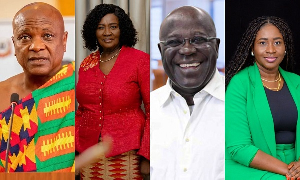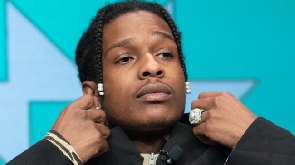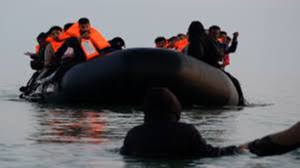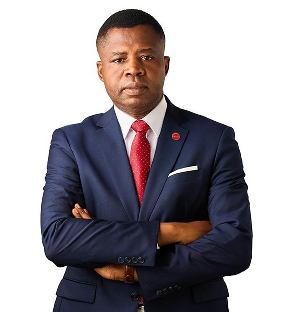After news emerged that players of the Black Starlets team had been given their bonuses from the 2017 U-17 World Cup in India, Citi Sports’ Fentuo Tahiru, believes that the decision to hand money to these young players is very wrong and the nation will rue it later.
Ghana’s U-17 players each got paid $4000 dollars for getting kicked out at the quarter final stage of the FIFA U-17 World Cup in India.
On the back of the obnoxious amounts of money that has been paid Black Stars players as bonuses and appearance fees in recent years, many would argue the amount given the starlets players is moderate. I disagree.
Instituting a cash reward bonus structure is a bad precedent that could lead to the “give us our money or we won’t play” mentality that has characterized our senior national team in recent years.
Prior to the tournament, there was a lot of talk from Paa Kwasi Fabin, the team’s head coach, about winning the competition in India.
He had good reason to be confident. After all they have beaten finalists in the U-17 Africa Cup of Nations where they played some great football. But as has been characteristic of Ghana’s teams, the build up to both the Africa Championship and the World Cup was centered on bonuses.
In the end, the Sports Ministry agreed to pay each player $1000 (slashed from $3000) per win at the Africa U-17 Cup of Nations and same was maintained for the World Cup in India after the team qualified.
However, at the World Cup, the Sports Ministry instituted a qualification bonus structure agreeing to pay each player $3000 if they qualified out of the group irrespective of how many matches they won.
In the end, Ghana qualified to the quarter-final stage with two victories over Colombia and India, while they lost to the USA. They received $3000 for that feat.
In the 1/16th stage, the Starlets beat fellow Africans Niger which attracted another $1,000, bringing their total earnings to $4,000. In the U-17 AFCON, they earned $4,000 as well for finishing second.
That’s $8,000 for each 17-year old for winning nothing while playing for Ghana. This cannot be right.
In 2013 in Turkey, Ghana’s U-20 players who were playing in the World Cup were paid $9000 for qualifying out of their group as one of the best third placed teams. They lost two of their group stage matches to France and Spain and only beat USA.
But a 2-0 win for Egypt over England ensured they nicked one of the 1/16th slots and a whopping $9, 000.
Two more wins against Portugal and Chile in the 1/16th and 1/8th stages respectively earned them an extra $6,000 each before losing to eventual winners France in the semifinals. Ghana finished third in that competition and each player still walked away with not less than $15,000 each.
What’s the message here? That we are a country that will always heavily reward mediocre performances? We have continuously done same even at senior level; but at least, these are professionals who need to make a living out of football.
At youth level, this is bad practice
A lot of the U-17 players are plucked out of Senior High School. What should an SHS student do with $8000?
It’s no surprise a number of the players feel discouraged to continue with school after the tournament. In the long run, if they do not make it at the highest level, they would not have the education to fall back on.
Since the inception of the FIFA U-17 World Cup in 1985, FIFA has never paid prize money for winning the competition neither does it pay participating teams any appearance fees.
In fact, the only FIFA competition that comes with financial reward is the senior World Cup where the winners of the 2014 edition walked away with a $35 million purse while participating countries earned in excess of $8 million.
The only team that will go home with a “cash reward” at the FIFA U-17 World Cup is the Fair Play team of the tournament which will receive a voucher for $10,000 worth of football equipment to be used for the development of youth football in that country.
When England won the FIFA U-20 and U-17 World Cup this year, their players did not receive any form of financial compensation from the FA or government for their efforts.
SUWON, SOUTH KOREA - JUNE 11: Dominic Solanke of England lifts the trophy in victory with team mates after the FIFA U-20 World Cup Korea Republic 2017 Final between Venezuela and England at Suwon World Cup Stadium on June 11, 2017 in Suwon, South Korea. England defeated Venezuela 1-0.
It is usually the responsibility of clubs to pay bonuses tied to international appearances for senior players who have such clauses inserted in their contracts. But the youth players do not have such clauses. In effect, these kids were playing purely for pride.
While I appreciate the importance of acknowledging their efforts and sacrifices, it is entirely wrong to prepare for every youth competition with promises of cash rewards for achievements.
FIFA’s aim for starting these youth competitions was to give budding talents the opportunity to compete against their peers from across the globe.
And if after more than 30 years, FIFA, with all its money, still has not seen the need to insert a financial package into these competitions; it is as clear a statement that money should not be a crucial element at youth level.
Instead, we need to start instilling the act of patriotism at this stage; making the players understand the pride in pulling on the shirt to represent their country.
If promises of handsome rewards (without being specific) are made to the players for certain marked achievements, then it’s fair. This will give the state the option of choosing how to reward their efforts.
When Ghana’s U-20 team won the World Cup in 2009, government rewarded the team with Toyota Camry saloon cars as well as GHC 10,000 in bonds that would mature in 15 years. That was a generous offer from a grateful nation.
When Ghana recently hosted the WAFU tournament, the Ghana team were told they would not receive winning bonuses.
Instead, they were told to win the competition and the prize money would be shared among them. They fought their way to victory. Ghanaians celebrated a trophy and the players got their money.
The President, Nana Akuffo Addo added an extra $100,000 to the prize money for them to share. Another example of a grateful nation to its determined fighters.
Stipulating cash rewards for U-17 players is wrong and will only create an entitlement mentality we will later come to regret.
Sports Features of Thursday, 9 November 2017
Source: Fentuo Tahiru













